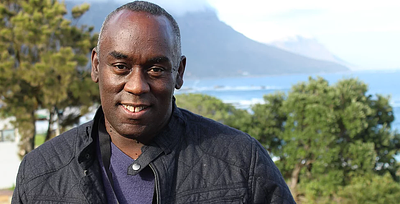Alex Wheatle shares his research process for writing Cane Warriors in this article with advice and tips for writing historical fiction.
When I finally decided to write a novel based on Chief Tacky’s 1760 slave revolt in Jamaica, the primary concern I had was to ensure the framework of the story was historically accurate. This was crucial for me because I didn’t want anyone to question the integrity of the narrative, especially with the subject matter I had chosen.
I could not afford to rely on one source, so in my research, I leafed through archives and records here in the UK and Jamaica. There was information online, but I was determined to establish facts that didn’t contradict each other.
Through my research, I discovered that Chief Tacky was born in western Africa, most likely Ghana. Further work in this field revealed to me the living conditions of the slaves who worked the cane fields and the punishments they had to suffer if they displayed any disobedience (there was one very sad, sobering day when I discovered from several sources how the slave-masters would cage rebellious slaves and suspend them from trees where they starved to death).
From all the accounts I read, Tacky’s war was launched on the Frontier plantation on Easter Sunday, 1760, before spreading to the nearby Trinity plantation. This all occurred in the St Mary parish of Jamaica.
I could confirm through my extensive research that Chief Tacky and his fellow Cane Warriors marched to Fort Haldane, killed everyone there and stole all the firearms that were held at the British garrison.
On trips to Jamaica, I walked the lands Chief Tacky trod. It’s always beneficial if you can familiarise yourself with the setting you want to describe in your story.
Once I had the basic narrative in place, I had to ensure that the clothes my characters wore and the food they ate was correct and true to the period. The same rules apply to the working day of the slave: what time did they start work? What tools did they use? How often did the males see their women folk? Where did they sleep? Who would be allowed to work in and about the master’s house?
Once I was satisfied I had the details of the working day of the slaves, I wanted to learn about their belief systems, their gods, their rituals and traditions. I simply could not write a sincere account if I depicted them as just slaves who worked the land. I had to learn what offered them hope, solace and strength.
To complete the characters, I had to hint at the language/accent they spoke in. It would be ridiculous if I had them speaking the colonial English of the day. For me, the voice of the protagonist is a crucial aspect of their character. It was the easiest part of my research as I am the son of Jamaicans and I had visited the island on numerous occasions.
The most important tip I can offer is to choose a subject matter that you have passion for. Research can be laborious and time-consuming, but if you have a genuine enthusiasm for your work, you will see it through to the end.
